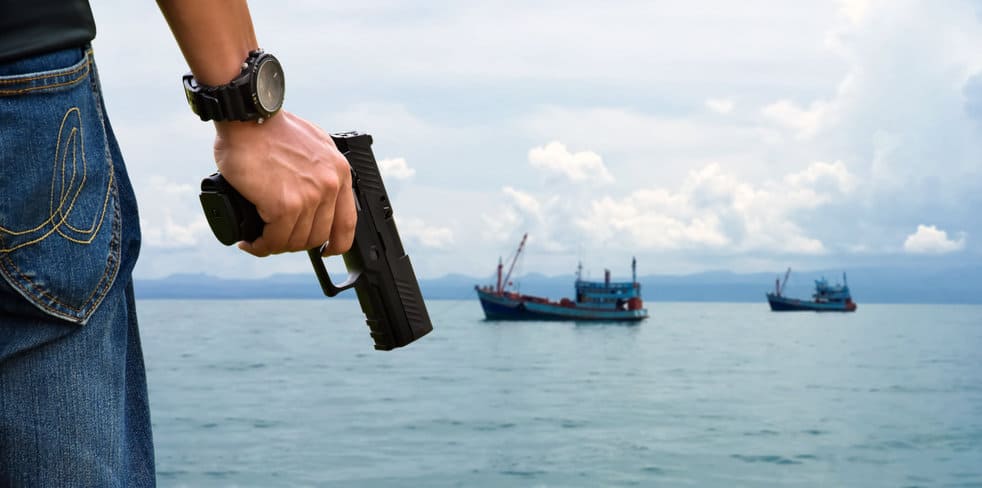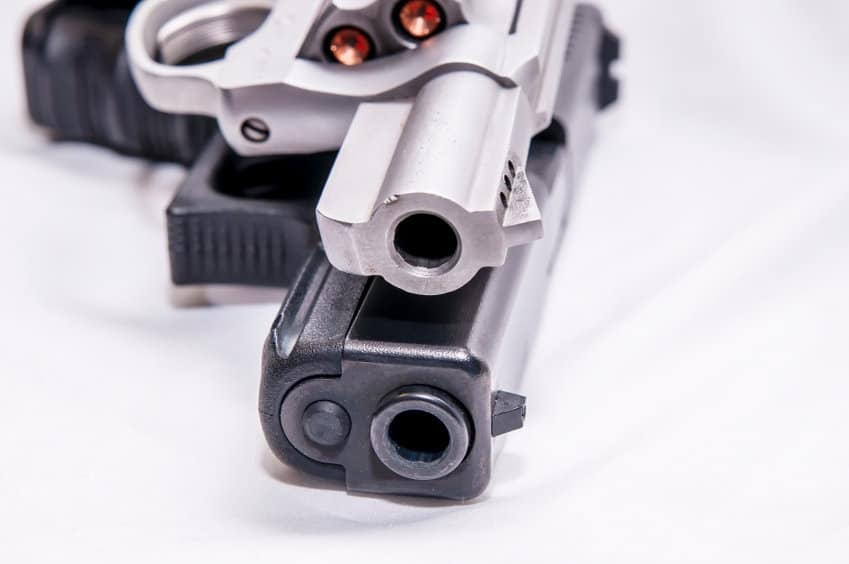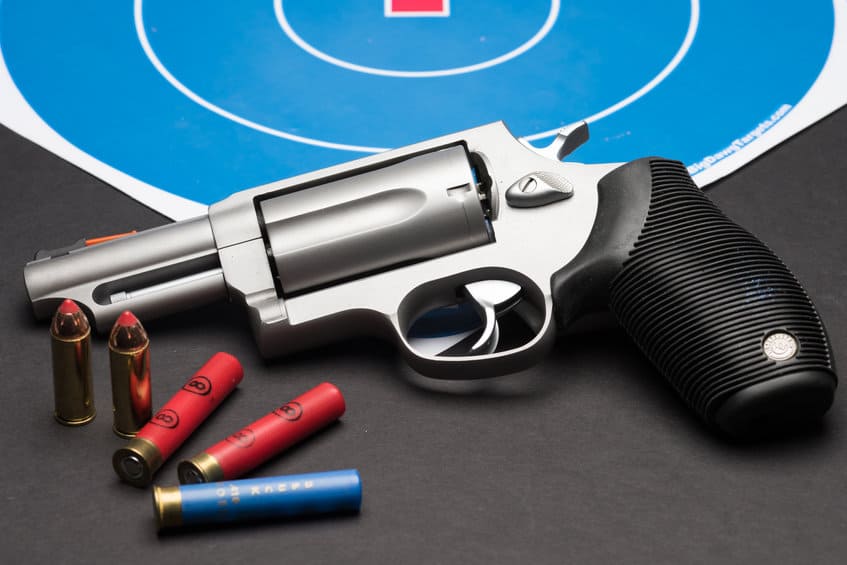
What is the best gun for boat defense? When I was a teenager, a gentleman sold two antique firearms to the owner of the gun shop where I worked. On closer inspection, I recognized one as a WW1 issue Colt 1911. The other was a Remington Model 11 Sportsman shotgun. Both weapons exhibited a matte hard-chrome finish. When I remarked on the pistol being from WW1, the manager told me that the guns had belonged to a veteran of that war who kept them on his sailboat in Florida. The gent had recently passed away, and his family had no desire to keep the weapons.
Before this, I had never thought about keeping a gun on a boat. Piracy was not a thing on Lake Michigan, and it never occurred to me that it still happened elsewhere. I cannot fault the old vet on his choice of weapons, though I would rather have had a five-shot Model 11 versus the three-round Sportsman model.
Carrying a gun aboard a ship, especially in international waters, is more common than one might think. A friend of my dad’s kept a semiautomatic Beretta shotgun on his yacht in the Bahamas. He said that you do not stop the boat for anyone in international waters and to be ready to shoot if they try to climb on. Apparently, not much has changed since the days of Captain Kidd.
Table of Contents
Legal Issues
When in international waters (generally 24 miles from the coast), a vessel is bound by the laws of the country where it is registered. Therefore a U.S. flagged boat can carry any weapon that is legal in the U.S. Inside of a nation’s protected water (generally 12 miles out), then that country’s (or state in the U.S.) laws apply. You must be aware of the laws at your destination and plan ahead as required. Every nation requires that you declare your weapons on arrival, sometimes to include flare guns and spearguns, with stiff penalties or (mostly) jail time for non-compliance. A list of firearms formalities for various nations can be found here.
In many countries, the weapons may remain on your boat in approved, secure (and sealed by customs) storage. The definition of secure storage may vary by locale. Other nations require the weapons to be held by the police while in the country, and they return them only when you are about to leave. Always get a receipt for your guns from the police, or you may not get them back.
Some nations will not allow weapons at all. Your choices here are; to not bring them, hide them well and risk time in a foreign jail, or throw them over the side. The last option may be the best bet if you need to make an emergency stop at a port unfriendly to firearms. I would not keep any guns on board that you are attached to or that are expensive.
Criteria
Saltwater and humidity are unkind to anything wooden or metallic. Therefore, any weapons kept on a boat must be corrosion-resistant, or one you do not care about. The hard chrome on the previously mentioned weapons was a wise choice. I would also choose a synthetic or laminated gun stock since they resist the elements better than walnut or maple.
Besides resistance to the elements, looks are another factor to consider. Many stops on the seas frown heavily on military-styled rifles like the AR and AK series weapons. Hunting-type arms raise fewer eyebrows and are no less deadly. Some places, like the Bahamas, prohibit rifles altogether, allowing only handguns and shotguns. Again, research your destinations and plan ahead.
So, with all this information, what is the best gun for boat defense? Let us examine a few options.
Best Guns for Boat Defense
Remington 870 Marine Magnum
Designed specifically for wet and corrosive environments, the Marine Magnum is the top-of-the-line for a boat defense shotgun. All metal surfaces, inside and out, have been electroless-nickel plated, and the stock is a durable synthetic. This gun was made for hard use. The originals are expensive but not hard to find. The new Remington Arms Company lists the model on its website, but I do not know if production has resumed yet. The Marine Magnum is the best gun for boat defense, in my opinion.
Other shotguns
Winchester, Mossberg, and Tri-star (among others) all catalog a nickel-plated shotgun for boat defense. The cost for most is significantly less than the Marine Magnum. I trust Mossberg and Winchester but have no experience with the other brands. The primary advantage of the cheap guns is that if you need to make an emergency stop somewhere that does not allow weapons, then it won’t hurt so bad if you need to chuck it over the side. Same if your destination requires local police to hang onto the guns while in port. If they don’t give them back, then it’s of little financial consequence.
Rifles
Some locals do not care for rifles, but some do not mind them. If you only make port in the U.S., then by all means, roll with the good stuff. An AR pistol or rifle can cover your defensive needs nicely. Or even better, go with a PTR-91 in .308 Winchester. However, if international destinations are in your future, find out what those territories allow. Many don’t bat an eye at hunting rifles like a lever-action .30-30 or bolt action .30-06. Some, like the Bahamas, do. Verify before you depart. A good choice here is the Mossberg 464 Brush Gun, with its plated finish and laminate stock.
Pistols
While a long gun is a better (and more intimidating) defensive weapon, handguns are still a viable defensive option, especially if the nefarious parties have already made it onto your boat. A stainless steel revolver in .357 Magnum, or a semi-auto in .45 ACP, 10mm, or .38 Super made from stainless steel or sporting a Duracoat finish are all good options. Some countries get weird about having military calibers and magazine capacity, so do your homework before purchasing.
Conclusion
Keeping a firearm on your boat can be a pain in the rear, but sometimes it is also a very necessary thing. Do your diligence on where you intend to stop, and be aware of the laws and regulations there. There is no reason to shed your right to self-defense when you leave U.S. waters. Be aware, and be safe.
Until Next Time.



